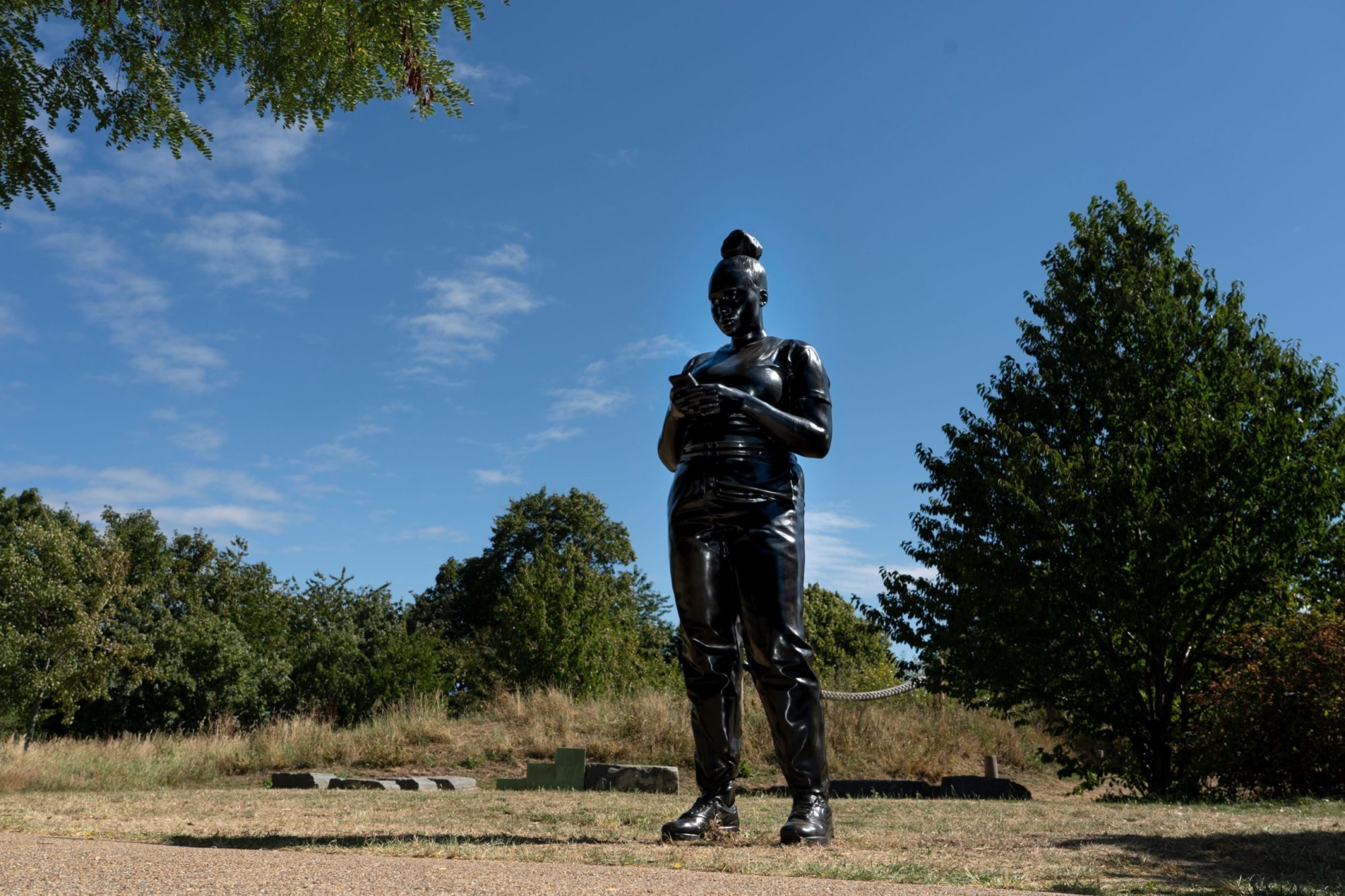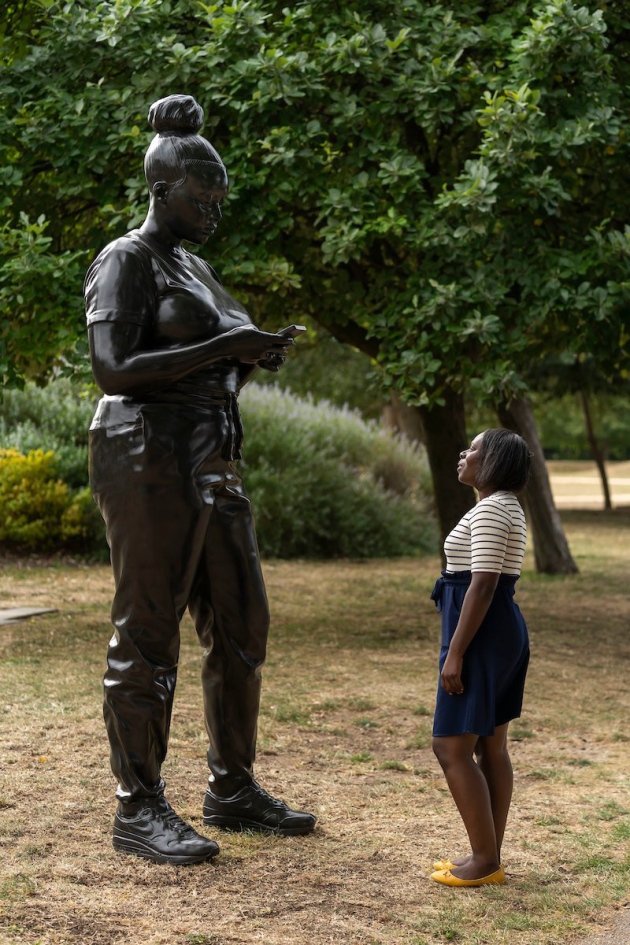Thomas J. Price

Thomas J. Price, Reaching Out, 2020, Three Mills, London [photo: Jeff Moore; courtesy of the artist]
Share:
This text originally appeared in ART PAPERS Fall/Winter 2020, Monumental Interventions, as part of a special dossier highlighting seven artists who have fought—and continue the fight—to transform their public spaces by uncovering suppressed histories, resisting oppression, and telling formerly silenced truths.
***
How does one begin to commemorate the Windrush Generation? Between 1948 and 1971, almost half a million people migrated from the Caribbean to the United Kingdom to fill labor shortages after World War II. This diverse populace significantly helped to rebuild the nation and shape contemporary British culture, and yet their descendants remain othered and vulnerable to various forms of state violence. In August 2020, London-based artist Thomas J. Price revealed Reaching Out on Three Mills Green, near Stratford, East London. Reaching Out depicts a young woman in Nike tennis shoes, gazing down at her mobile phone. The monument is unromantic and unpretentious, relying on scale and posture to subtly acknowledge the presence and persistence of the Windrush Generation across the United Kingdom.
Thomas J. Price, Reaching Out and Deputy Mayor of Newham Charlene McLean, 2020, Three Mills, London [photo: Andrew Baker; courtesy of the artist]
In an attempt to expand the perimeters of classical sculpture, Price creates figurative works of Black men—and in this single case, a Black woman—in bronze and aluminum at various scales. Reaching Out presents a young woman, not nude, posturing, or performing. Through the contemporary banality of her dress and posture, Price created a sculpture of a Black woman that does not invite the consumptive gaze of viewers or participate in traditional markers of power. This nine-foot-tall statue is made of dark bronze and stands unsupported by plinth or pedestal. The subject wears casual pants that gather at her ankles and a fitted crewneck T-shirt. Her attention is consumed by the phone, connoting communication with distant others. The sculpture implies the subject’s internal life, one not accessible to viewers. Reaching Out defies the figure’s commodification by not valorizing the Windrush Generation’s labor, for which the work was commissioned.
